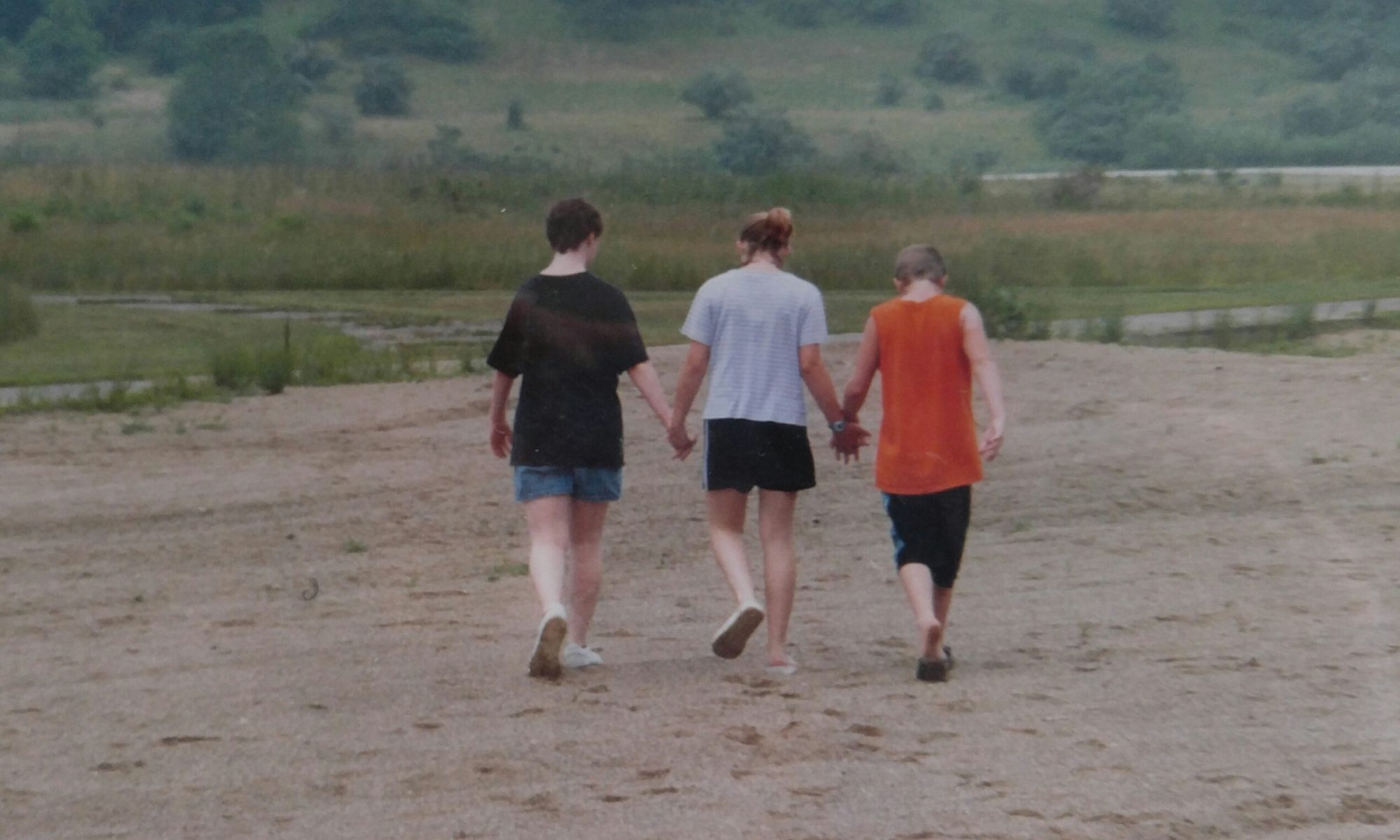In our house, the last weekend of September/first weekend of October is a time to be thought of all year. That’s the week that the fair comes to town with all of the spinning, dropping, swooping rides that Casey and Rob just adore. Their autism sensory issues enjoy the most amazing times on those rides.
Rob loves anything that will swing him. His absolute favorite is a giant boat that swings back and forth. While most people want the end seats so they go higher, Rob doesn’t care. If the end is open, he’ll sit there, but he’ll take any seat, as long as he gets to swing. He was on this ride at least eight times this morning.
Another favorite is one that swings side to side. He giggles as soon as he sees it and smiles through the whole ride, even when it goes high. It always amazes me that he is scared of heights (won’t even think about riding the Ferris Wheel) but he’ll happily jump on rides that go just as high.
He refuses to go on anything too high. Or anything that will go upside down. He likes to go in circles. Casey will ride anything, at least once. She has to ride the Ferris Wheel, even though she is terrified of heights because she has rode it every year. It’s routine and you can’t break routine!
We plan to get to the fair early on Sunday mornings, because there is never a crowd. The kids can run from ride to ride without stopping. By the time the crowds come, they are ready for French fries and to head home. Rob doesn’t like crowds at all and after a few hours, both of them begin “shutting down” because they are over-whelmed. What was a dream time turns into a difficult situation for them.
The swinging calms Rob down. I’ve often told our neighbor I was going to buy a huge boat swing for our backyard. She was completely agreeable, as long as she could ride it, too. While I am joking about the giant boat, I desperately wish I could find something else that makes him so calm and happy. He loves his swing, but it can’t swing him as far and as high as he wants.
Many families I’ve talked to don’t go to the fair. The noises, the lights, the spinning, the people – it’s just too much for many people with autism sensory issues. I understand that completely. While the kids enjoyed the fair when they were younger, it wasn’t nearly as much as now. Today, they can tell me what they want to ride. They can tell me when they have had enough. (usually by asking for fries – that’s always been the last thing we do and as you know, you can never break the routine!)
Casey and Rob rode constantly for a few hours. I don’t think Rob was completely ready to stop, but when Casey asked for fries for the third time, we knew it was time to go. I can always tell by the look in their eyes when they are becoming overwhelmed and shutting down. The happy, sparkles that they start the day with are gone and dull eyes are looking out. They both withdraw when they are overwhelmed.
When Casey was little, she didn’t give me any warning that she was overwhelmed until the meltdown happened. She wasn’t able to say she had had enough. Thankfully, she can now. Hopefully, your little ones will grow into that skill, too. Rob never had those meltdowns. He would just withdraw into himself until he felt better.
I’ve always been willing to leave when the kids let me know it’s time. It’s hard to do that, sometimes, when it costs so much to go to the fair, but at the same time, we have beautiful memories of a day spent together laughing and having fun. It’s hard to put a price tag on that, especially since for so many years, Mandy and Cory were far away and not able to go. Having them all with me today was so special and a day I’ll never forget.
There was one minute today that I felt a little melancholy. When Casey and Rob are at the fair, someone is with them all the time, except when they are riding. (I watch them get on and then go to the exit and wait – it’s awesome to be able to do this!) I saw some women sitting on a bench, enjoying each other’s company while their kids ran around the rides. For just a second, I wondered what it would be like to come to the fair and be that relaxed.
It’s not that I was jealous. More that I was curious about a life like that. But, as Cory pointed out, I could do that, if I wanted to – just go to the fair without the kids sometime. He was grinning and I had to laugh, but he’s right. I may wonder about the lives of others, but in reality, they have problems, too. Maybe not the same issues that we have as a family, but something.
I hope that each of you can find ways to enjoy family time together. It’s never easy (But I doubt it’s all that easy for “typical” families, either!) but go for it! Stay a few minutes. Leave when you want. It won’t work out all the time, but when it does, you will feel like I do, right now. Happy, relaxed and so blessed to have the kids that God gave me.








